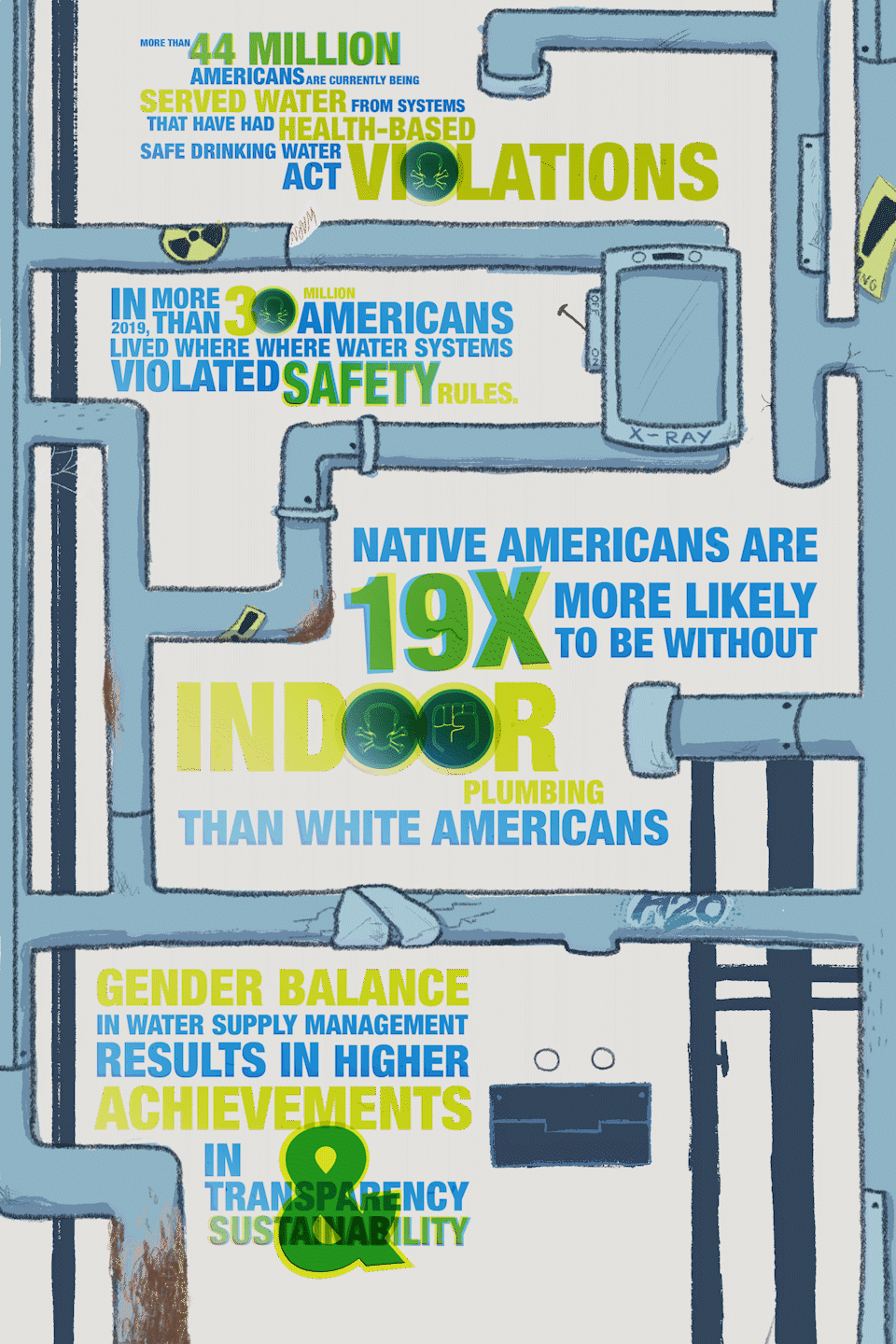
WATER MATTERS
“The Safe Drinking Water Act (SDWA) is the main federal law that ensures the quality of Americans' drinking water.”
But, not all states, cities, communities, or individuals have access to clean drinking water. Poisoned drinking water contaminates human health.
Your race and class influence whether you have clean drinking water. Many indigenous and spiritual communities know not only the importance of water for bodily health but the health of all that is touched by the flow. Mothers and women fight as leaders of families and communities because in a democracy, all voices should be heard.
Health
More than 2 million people live without access to safe drinking water and sanitation in the United States. We uncovered the ways water has affected our health, and how some cannot trust their running water.
Science
Of the U.S. coal-fired power plants with monitoring data, 91% are contaminating groundwater with unsafe levels of toxic pollutants. But this science is ignored and gives rise to citizen scientists.
Race and Class
In 1964, a war was declared on poverty and the historic Civil Rights Act became law. In 2019, “the average American family spent $474 on water and sewage.” Families in Appalachia spent $720 and in Flint $864.
Spirituality & Indigeneity
Water is viewed as a gift or right for all, but the water crises in the US tell a different tale. “Fifty-eight per 1,000 Native American households lack [water] plumbing, compared with 3 per 1,000 white households.”
Gender
Today, women around the world will spend a collective 200 million hours collecting water. Where you find water poisoning, you will also find activists and mothers who fight for clean water from Appalachia to Michigan.
Democracy
Water crises around the United States represent a broken democracy where people's voices are not heard. “From 1977 to 2014, federal spending on water infrastructure fell from $76 per person to only $11 per person.”


